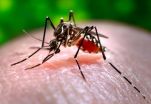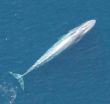(Press-News.org) CORVALLIS, Ore. – As researchers continue to work toward vaccines for serious tropical diseases such as dengue fever, experts caution in a new report that such vaccines will probably cause temporary but significant spikes in the disease in the years after they are first used.
This counter-intuitive and unwanted result could lead to frustrated policy makers, a skeptical public and concerns that the vaccine is making things worse instead of better, researchers say.
In fact, it will just be the natural result of complex interactions between less-than-perfect vaccine protection and routine fluctuations in the populations of insects who carry the diseases.
"Our analysis suggests that if we develop and widely use a vaccine for dengue fever, there may later be spikes in the incidence of the disease that are two to three times higher than its normal level," said Jan Medlock, an assistant professor in the Department of Biomedical Sciences at Oregon State University, and expert on the evolution and epidemiology of infectious disease.
"We can explain why this will happen and show how, in the long run, vaccine use will clearly result in fewer cases of disease," Medlock said. "Our concern is to warn people in advance about this issue, so that policy makers and the public don't freak out and lose faith in the vaccination programs."
This research, published in Epidemiology and Infection, was done by experts at the OSU College of Veterinary Medicine and Clemson University, both of which supported the studies. Scientists used mathematical modeling to examine the quirks of infectious disease transmission that may lead to this quandary. The work was specific to dengue fever, but may also be relevant to other diseases for which vaccines are being sought, such as malaria, and in which the level of protection is less than total.
Dengue fever is a serious illness that affects about 50 million people a year, and for which researchers are hoping to develop effective vaccines in the near future. It's not usually fatal but is extremely common in the tropics and subtropics, and has re-emerged in recent decades as the use of insecticides such as DDT has been stopped.
There are several serotypes, or strains of the dengue virus, that are spread by mosquitoes. One infection provides some protection, and two infections usually make a person resistant for the rest of their life. In Thailand, where the disease is prevalent, about 80 percent of children have two infections by the age of 11 and develop resistance. Dengue fever is found in 100 countries around the world and 2.5 billion people are at risk of infection.
"The problem, if and when we develop and use a vaccine, is that it will provide some, but not complete protection, and it will interrupt the natural, fairly steady rate of infections among children," Medlock said.
In this scenario, the beginning of a vaccination program will slow the numbers of children getting the disease – for a while. But it's expected that a dengue vaccine will not provide total protection against infection. Then, during a period when naturally fluctuating mosquito populations reach an unusually high level, a disproportionate number of children – who are still vulnerable to infection and have never had the disease – will become infected in a short period.
This could cause loss of faith in the vaccination program among the public or policy makers who have never seen such high levels of the disease, stretch the capabilities of health care facilities and workers to care for the sick, and in a worst-case scenario lead people to avoid the vaccine, researchers said. Some short-term spikes could even be as high as seven times the average rate, they said.
"In fact, we conclude in this analysis that over a 15-year period, a vaccination program will clearly reduce the number of overall infections," Medlock said. "These significant spikes will mostly occur as the program is beginning. What we need to do is help people understand these forces so they anticipate them."
A possible way to deal with this phenomenon, researchers said, is literally to vaccinate fewer people. This would cause higher numbers of people to get the disease in the long run but reduce the intensity of the spikes and the associated demands on a health care system.
The levels of disease will fluctuate based on such variables as location, climate, the efficacy of a vaccine, the numbers of people vaccinated, surges in insect populations, and other factors. This phenomenon may have occurred, or may occur in the future, with almost any vaccine that provides partial, but not total protection against infection.
INFORMATION: END
Use of dengue vaccine may cause short-term spikes in its prevalence
2014-09-05
ELSE PRESS RELEASES FROM THIS DATE:
E-cigarettes: Studies presented at the ERS Congress
2014-09-05
Munich, Germany: The latest evidence on the potential benefits and risks of e-cigarettes has been presented this week at the European Respiratory Society's International Congress in Munich.
Electronic cigarettes have received much attention in recent years as their use has increased across Europe. As the devices are relatively new, there is little long-term evidence detailing the potential harm or benefit that these devices can cause.
During the ERS Congress, a number of abstracts will be presented on the topic. The key outcomes are revealed here:
Research into ...
IBD patients: Consider giving infliximab a second try
2014-09-05
Bethesda, MD (Sept. 5, 2014) — Restarting infliximab therapy after a drug holiday is safe and effective for patients with inflammatory bowel disease (IBD), according to a new study1 in Clinical Gastroenterology and Hepatology, the official clinical practice journal of the American Gastroenterological Association.
"Our findings suggest that starting infliximab after a history of prior therapy can be very beneficial to patients," said lead study author Filip Baert, MD, PhD, from the department of gastroenterology, University Hospitals Leuven in Belgium. "Most striking, ...
New blood test could offer more tailored treatment of ovarian cancer
2014-09-05
A new blood test allowing doctors to predict which ovarian cancer patients will respond to particular types of treatment is a step closer following a new study by Manchester scientists.
Researchers from The University of Manchester and The Christie NHS Foundation Trust - both part of Manchester Cancer Research Centre - say the test could be developed and used in hospitals within the next few years.
It would mean medics could see which patients could benefit from blood vessel-targeting drugs - such as bevacizumab - in addition to conventional therapy. Meanwhilehile others ...
California blue whales rebound from whaling, first of their kin to do so
2014-09-05
The number of California blue whales has rebounded to near historical levels, according to new research by the University of Washington, and while the number of blue whales struck by ships is likely above allowable U.S. limits, such strikes do not immediately threaten that recovery.
This is the only population of blue whales known to have recovered from whaling – blue whales as a species having been hunted nearly to extinction.
Blue whales – nearly 100 feet in length and weighing 190 tons as adults – are the largest animals on earth. And they are the heaviest ever, weighing ...
Glanville fritillary genome sequenced at the University of Helsinki
2014-09-05
The Glanville fritillary has long been an internationally known model species for ecology and evolutionary biology, whose population biology has been studied on the Åland Islands for more than twenty years. Now the species has become even more significant. Led by Research Professor Ilkka Hanski, the Metapopulation Research Group (MRG) at the University of Helsinki has sequenced the full genome of the Glanville fritillary together with three groups from the Institute of Biotechnology at the same university.
Before the sequencing of the Glanville fritillary genome, which ...
Near-extinct African amphibians 'invisible' under climate change
2014-09-05
An international team of researchers has found that the majority of threatened species are 'invisible' when using modern methods to predict species distributions under climate change.
Using African amphibians as a case study, the researchers found that more than 90 per cent of the species listed as threatened on The IUCN Red List of Threatened Species are omitted by the most popular tools for species distribution modelling.
The study, led by researchers from the Universities of York and Copenhagen and the United Nations Environment Programme World Conservation Monitoring ...
Caffeine therapy for apnea of prematurity does not have long-term harmful effects on sleep
2014-09-05
Caffeine therapy for apnea of prematurity has no long-term harmful effects on sleep or control of breathing, according to a new study of 201 preterm children assessed at ages 5-12, the first study in humans to examine the long-term effects of neonatal caffeine treatment on sleep regulation and ventilatory control.
"Animal studies have suggested that administration of neonatal caffeine to premature infants, while improving survival and other outcomes, may have long-term detrimental effects on sleep and control of breathing during sleep," said lead author Carole L. Marcus, ...
Research finds no association between wearing a bra and breast cancer
2014-09-05
PHILADELPHIA — A population-based case-control study found no association between bra wearing and increased breast cancer risk among postmenopausal women, according to research published in Cancer Epidemiology, Biomarkers & Prevention, a journal of the American Association for Cancer Research.
"There have been some concerns that one of the reasons why breast cancer may be more common in developed countries compared with developing countries is differences in bra-wearing patterns," said Lu Chen, MPH, a researcher in the Public Health Sciences Division at Fred Hutchinson ...
Magnetic nanocubes self-assemble into helical superstructures
2014-09-05
Materials made from nanoparticles hold promise for myriad applications, from improved solar energy production to perfect touch screens. The challenge in creating these wonder-materials is organizing the nanoparticles into orderly arrangements.
Nanoparticles of magnetite, the most abundant magnetic material on earth, are found in living organisms from bacteria to birds. Nanocrystals of magnetite self-assemble into fine compass needles in the organism that help it to navigate.
Collaborating with nanochemists led by Rafal Klajn at the Weizmann Institute of Science in Israel, ...
A lifetime of outdoor activity may contribute to common eye disease; sunglasses may help
2014-09-04
BOSTON (Sept. 4, 2014) — Residential geography, time spent in the sun, and whether or not sunglasses are worn may help explain why some people develop exfoliation syndrome (XFS), an eye condition that is a leading cause of secondary open-angle glaucoma and can lead to an increased risk of cataract and cataract surgery complications, according to a study published on Sept. 4 in JAMA, Ophthalmology.
Despite improvements in understanding the cause of this common yet life-altering condition, more work needs to be done. "The discovery that common genetic variants in the lysyl ...



